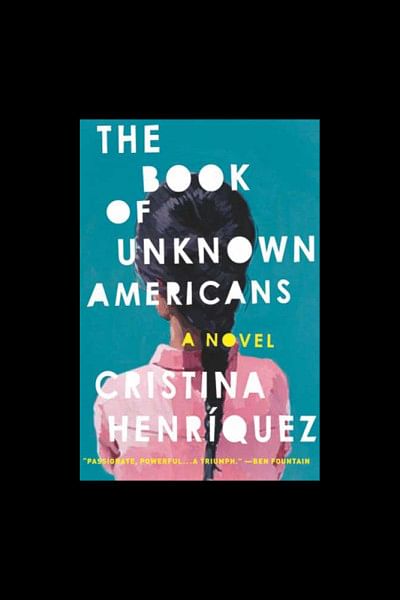The Book of Unknown Americans

Cristina Henriquez's latest novel The Book of Unknown Americans is a tale of diaspora, dreams and desperation. In literary terms, diaspora refers to the dispersion of people from their motherland to other countries for economic, political, religious or other reasons. Any discourse about American literature reminds us of diaspora. The exodus of millions of Europeans that emigrated from their home countries to New England (present day America) during 16th, 17th and 18th centuries in quest of peace, brotherhood and freedom has been illustrated by a broad spectrum of authors and poets of current and previous times through fictional works and verses.
The Book of Unknown Americans is a novel based on the lives of some Latin Americans, also known as Hispanics, living in some parts of the United States. It's a story of illusions, dismay and tenacity that mark the lives of most of the immigrants living away from their motherlands and who undergo maladjustments and different sorts of adversities while striving to make ends meet. As found in the novel, Alma, a Mexican woman migrated to America with her husband and her daughter several years back in search of a better lifestyle and more essentially, for her daughter Maribel's treatment who has been suffering from cerebral trauma since a massive car crash. Alma works as hard as she can with an utmost desperation to earn enough money to get her daughter cured. Moreover, she attends English language classes to assimilate to the English-speaking society of America but her indoor and outdoor chores make it difficult for her to keep appearing in the classroom regularly. In the meantime, Mayor, another Latin American boy falls in love with Maribel. Mayor's parents migrated from Panama to the United States and they earn their livelihood by vending sandwiches to local residents. However, Mayor's mom and dad don't entertain his romance with Maribel on the grounds of Maribel's cerebral ailment.
Some more Hispanic people have been characterized in the novel by the author. She tells the story of one man from Nicaragua and another from Guatemala who migrated to America to escape the horrors of civil wars in their countries of origin. Another man from Paraguay, who had cherished the dream of becoming a boxer for years, finally gives it up as he discovers that keeping one's body and soul together is a tough job in America being an immigrant, let alone pursuing personal illusions. So, in America disillusionment lurks round the corner all the time as far as the troubled lives of immigrants are concerned. However, the characters in The Book of Unknown Americans at the end of the day take things for granted and hold back their tears and sighs of grief considering that they are lucky enough at least to be able to continue living on the soil of the United States.
The endeavors by immigrants to adapt to the social and cultural norms of America have been addressed by some more writers. Jhumpa Lahiri, for example, portrayed the pains, pleasures and paradoxes of South Asian immigrants, Indian expatriates in particular, living in America in her books Unaccustomed Earth, The Lowland and Interpreter of Maladies.
The Book of Unknown Americans also tells the story how immigrants compromise with the dichotomies that accost their original identities while living and working overseas. Diaspora is all about saying "yes" to an onslaught of unacquainted social creeds, accepting unfamiliar and amorphous principles for the sake of survival away from home while there is no second choice.
Bonds between Hispanic immigrants have also been addressed in the novel The Book of Unknown Americans. They exchange suggestions, tips and guidelines among themselves which lead to an interdependent social structure among the expatriates from different Latin American nations. Such fraternity and reciprocal confidence are vital under the erratic circumstances of diaspora, the novel implies. Living alone does not solve all riddles of life. Rather life can be better lived by sharing its bleak and blithe aspects with one another under an umbrella where a lot of commonalities prevail. The novel further shows the resilience and ironbound determination of some of its characters by means of which they manage to survive through various impediments in the white-dominated American cities.
This book makes us glance once again at our individual dreams, our ancestral creeds, beliefs, traditions and all other long-preserved possessions that have made us the people we are today. That's one of the substantial points to be found in The Book of Unknown Americans.
...............................................................................................
The reviewer is senior lecturer, Department of English, Metropolitan University, Sylhet

 For all latest news, follow The Daily Star's Google News channel.
For all latest news, follow The Daily Star's Google News channel. 



Comments